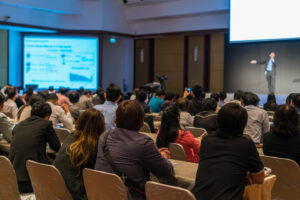掲載された研究内容/手法
- 心理学/スポーツ心理学
- 運動学/運動学習
- 健康科学
- スポーツコーチング
- eスポーツ
- メタ分析/総説
Google Scholar ; ResearchGate
オススメの本の章/研究論文
- Iwatsuki, T. & Van Raalte, J. L. (2024). Instructional Self-Talk, Performance, and Learning: Current Status and Future Directions. Review of Self-talk and Performance in Real-World Settings. In Thibodeaux, J, & Dickens, Y. American Psychological Association. (Link)
- Iwatsuki, T., Bacelar, M. F. B., Yoshihara, S., Lohse, K., & Van Raalte, J. L. (Under Review). Effects of instructional and motivational self-talk: A meta-analysis. Psychology of Sport and Exercise. https://osf.io/preprints/psyarxiv/xp49f_v1?view_only=(PrePrint)
- Mousavi, M. Dehghizade, J., & Iwatsuki, T. (2023). Neither too easy nor too difficult: Effects of different success criteria on motor skill acquisition in children. Journal of Sport and Exercise Psychology. (Link)
- Khalaji, Z., Alhosseini, M. N., Hamami, S. S., Iwatsuki, T., & Wulf, G. (2024). Optimizing motor learning in older adults. Journal of Gerontology: Psychological Sciences. (Link)
- Iwatsuki, T., Hui-Ting, S., Abdollahipour, Z., & Wulf, G. (2021). More bang for the buck: Autonomy support increases muscular efficiency. Psychological Research.(Link)
- Iwatsuki, T., Navalta, J., & Wulf, G. (2019). Autonomy enhances running efficiency. Journal of Sports Sciences.(Link)
本の章 (Link)
- Iwatsuki, T. (Forthcoming in 2026). Self-Talk and Performance. Attentional Focus and Human Movement. In Sekiya, H., Kyorin-Shoin Publishers. (Japanese)
- Iwatsuki, T. & Van Raalte, J. L. (Forthcoming in 2026). Self-Talk: Enhancing Motivation and Sport Performance. Performance Psychology for Sport and Other Domains. In Martin, E., & Byrd, M. Kendall Hunt.
- Iwatsuki, T. (2025). Teaching Mental Skills. Becoming a Sport, Exercise, and Performance Psychology Professional: A Global Perspective. In Friesen, A., Brusckner, S., & Tashman, L. Routledge.
- Iwatsuki, T. & Van Raalte, J. L. (2024). Instructional Self-Talk, Performance, and Learning: Current Status and Future Directions. Review of Self-talk and Performance in Real-World Settings. In Thibodeaux, J, & Dickens, Y. American Psychological Association. (Link)
- Iwatsuki, T. & Van Raalte, J. L. (2022). The Use of Self-Talk in Closed Self-Paced Motor Tasks. Psychology of Closed Self-Paced Motor Tasks. In Lidor, R., & Ziv, G. Routledge.(Link)
研究論文 (Link)
- Iwatsuki, T., Bacelar, M. F. B., Yoshihara, S., Lohse, K., & Van Raalte, J. L. (Under Review). Effects of instructional and motivational self-talk: A meta-analysis. Journal of Sport and Exercise Psychology. https://osf.io/preprints/psyarxiv/xp49f_v1?view_only= (PrePrint)
- Khalaji, Z., Salehi, D., Alhosseini, M.N. Iwatsuki, T., Broberg, M., Lewthwaite, R. (Under Review). Applying OPTIMAL theory to enhance clinical outcomes for people with multiple sclerosis. Disability and Rehabilitation.
- Slovák, L., Panfilov, E., Zahradník, D., Nieminen, M., Land, W. M., Sarvestan, J., Iwatsuki, T., & Abdollahipour, Z. (Under Review). Knee joint biomechanics under external focus instructions promoting a quiet, safe and soft landing. The Knee.
- Mousavi, S. M., Ludvic, L., Maruo, K., & Abdollahipour, Z., & Iwatsuki, T. (2025). Effects of stereotype threat on motor performance, cognitive anxiety, and gaze behavior: Highlighting the role of context. Cognitive Processing. (Link)
- Mousavi, S. M., Salehi, H., & Iwatsuki, T. (2025). Gender stereotype threat and motor learning: Exploring its impact, underlying mechanisms, and attentional focus pathways for mitigation. Human Movement Science. (Link)
- Mousavi, S. M., Salehi, H., & Iwatsuki, T. (2025). Efficacy of an expectancy-based training in mitigating the effect of explicit gender stereotype activation on motor learning in children. Learning and Motivation. (Link)
- Yamada, M. Ansari, O., Emami, A., Kakhki, A. S., & Iwatsuki, T. (2025). The distance effect and dual task on attentional focus cues during a bimanual task. Journal of Motor Learning and Development.
- Mousavi, S. M., Salehi, H., & Iwatsuki, T. (2024). The effect of task-irrelevant choices on children’s motor learning in stereotypical conditions. Motor Behavior. (Link)
- Iwatsuki, T., Andrew, A., Pierce, B. F., & Abdollahipour, Z. (2024). Superstition does not enhance motor performance and learning. Journal of Sport Behavior. (Link)
- Slovák, L., Panfilov, E., Zahradník, D., Nieminen, M., Land, W. M., Sarvestan, J., Iwatsuki, T., & Abdollahipour, Z. (2024). External focus of attention reduces cartilage load during drop landings. Scandinavian Journal of Medicine and Science in Sports. (Link)
- Khalaji, Z., Alhosseini, M. N., Hamami, S. S., Iwatsuki, T., & Wulf, G. (2024). Optimizing motor learning in older adults. Journals of Gerontology: Psychological Sciences and Social Sciences. (Link)
- Saucedo, F., Muir, I., Ambati, V. N. P., & Iwatsuki, T. (2024). Effects of positive and negative self-talk on balance and postural sway in college students. Journal of Kinesiology & Wellness. (Link)
- Slovák, L., Sarvestan, J., Alaei, F., Iwatsuki, T., & Zahradník, D. (2024). Upper limb biomechanical differences in volleyball spikes among young female players. International Journal of Sport Science & Coaching. (Link)
- Mousavi, M. Dehghizade, J., & Iwatsuki, T. (2023). Neither too easy nor too difficult: Effects of different success criteria on motor skill acquisition in children. Journal of Sport and Exercise Psychology. (Link)
- Mousavi, M. & Iwatsuki, T. (2022). Easy task and choice: Motivational interventions facilitate motor skill learning in children. Journal of Motor Learning and Development.(Link)
- Iwatsuki, T., Hagiwara, G., & Dugan, M. (2022). Effectively optimizing esports performance through movement science principles. International Journal of Sport Science & Coaching.(Link)
- Hagiwaga, G., Kurita, K., Hachisuka, S., Warisawa, S., Iwatsuki, T., Mizuochi, M., & Yukhymenko-Lescroart, M. (2022). A development and preliminary validation of the brief version of the Japanese Academic and Athletic Identity Scale. International Journal of Sport Science & Coaching.(Link)
- Iwatsuki, T., Hui-Ting, S., Abdollahipour, Z., & Wulf, G. (2021). More bang for the buck: Autonomy support increases muscular efficiency. Psychological Research.(Link)
- Iwatsuki, T. & Otten, M. (2021). Providing choice enhance motor performance under psychological pressure. Journal of Motor Behavior.(Link)
- Hagiwara, G., Funamori, H., Matsumoto, M, Akiyama, D., Iwatsuki, T. (2021). Relationships among athletic identity, mental health and social support in Japanese student-athletes during the COVID-19 pandemic. International Journal of Environmental Research and Public Health. (Link)
- Hagiwara, G., Iwatsuki, T., Funamori, H., Matsumoto, M., Kubo, Y., Takami, S., Okano, H., & Akiyama, D. (2021). Effect of positive and negative ions in esports performance and arousal levels. Journal of Digital Life.(Link)
- Iwatsuki, T. & Regis, J. C. (2021). Relatively easy criteria for success enhances motor learning by altering perceived competence. Perceptual and Motor Skills.(Link)
- Hagiwara, G., Isogai, H., & Iwatsuki, T. (2020). Examining academic and athletic identity in Japanese collegiate student-athletes. Journal of Physical Education and Sport.(Link)
- Iwatsuki, T., Navalta, J., & Wulf, G. (2019). Autonomy enhances running efficiency. Journal of Sports Sciences.(Link)
- Chua, L., Katrina, D. M., Iwatsuki, T., Abdollahipour, Z., & Lewthwaite, R., & Wulf, G., (2019). Practice variability promotes an external focus of attention and enhances motor skill learning. Human Movement Science.(Link)
- Iwatsuki, T., Van Raalte, J. L., Brewer, B., Petipas, A., & Takahashi, M. (2018). Relations among reinvestment, self-regulation, and perception of choking under pressure. Journal of Human Kinetics.(Link)
- Van Raalte, J. L., Cornelius, A., Mullin, E., Brewer, W. B., Van Dyke, E., Johnson, A. J., & Iwatsuki, T. (2018). I will use declarative self-talk… or will I? Replication, extension, and meta-analyses. The Sport Psychologist. (Link)
- Iwatsuki, T., “Movement Efficiency Through Autonomy Support” (2018). University of Nevada, Las Vegas Dissertations. (Link)
- Wulf, G., Iwatsuki, T., Machin, B., Kellogg, J., Copeland, C., & Lewthwaite, R. (2018). Lassoing skill through learner choice. Journal of Motor Behavior. (Link)
- Iwatsuki, T., Abdollahipour, Z., Rudolf, P.,Lewthwaite, L., & Wulf, G. (2017). Autonomy facilitates repeated maximum force productions. Human Movement Science. (Link)
- Hagiwara, G., Iwatsuki, T., Isogai, H., Van Raalte, J. L., & Brewer, B. (2017). Relationship among sport helplessness, depression, and social supports with teammates among American student-athletes. Journal of Physical Education and Sports. (Link)
- Iwatsuki, T., Takahashi, M., & Van Raalte, J. (2016). Effects of the intention to hit a disguised backhand drop shot on skilled tennis performance. International Journal of Sport Science & Coaching. (Link)
- Iwatsuki, T. & Wright, P. (2016). Relationship among movement reinvestment, decision-making reinvestment, and perceived choking under pressure. International Journal of Coaching Sciences. (Link)
- Iwatsuki, T., Van Raalte, J., Brewer, B., Petipas, A., & Takahashi, M. (2016). Psychological factors related to choking under pressure. International Tennis Federation Coaching and Sport Science Review. (Link)
- 岩月猛泰、高橋正測 (2014). テニスのバックハンドにおけるドロップショットの動作解析:バックハンドのスライスと比較して.テニスの科学. (Link)
- 岩月猛泰、高橋正測 (2012). コートサーフェス別のファーストサービスに着目した世界一流テニス選手のゲーム分析:ロジャー・フェデラー対ラファエル・ナダルの場合.テニスの科学. (Link)
- 岩月猛泰、高橋正測、渡部悟 (2011). 世界一流男子テニス選手におけるファーストサービスに着目したゲーム分析.桜門体育学会研究. (Link)
- 高橋正測、水上博司、鈴木理、金野潤、大嶽真人、佐藤秀明、近藤克之、岩月猛泰 (2009) 大学新入生の超音波法による骨密度と体力及び生活習慣との関係.桜門体育学会研究. (Link)










